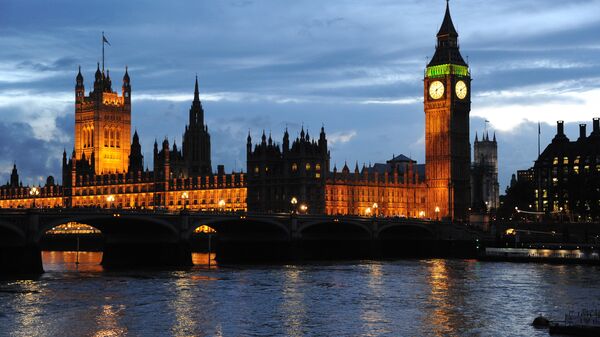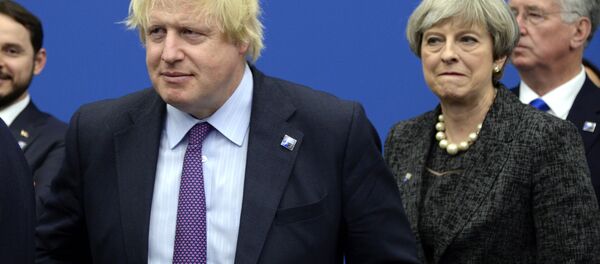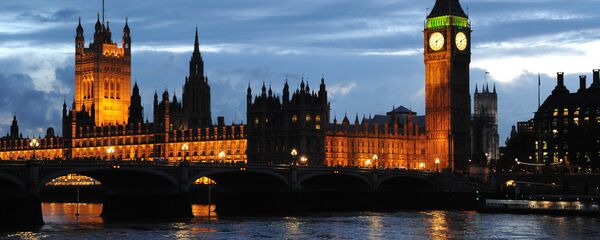Sputnik discussed this with Rodney Atkinson, founder of freenations.net website, one of Britain's most successful political economists and a former advisor to ministers.
Sputnik: In your view, how justified are the EU's concerns over a Corbyn run cabinet?
Rodney Atkinson: Not many really, that's not really justified, not least, because the European Union itself is an institutional form of state aid, and there's massive state subsidies of Germany and French farmers, there's state aid for Airbus airplanes, and a form of distortion through the mass migration of cheap labor, which you could say is a kind of subsidy.
READ MORE: UK to Leave Customs Union When Brexit Transition Period Ends in 2020 — Spokesman
Equally, there are completely different taxes applied in different parts of the European Union. For instance, the French tax whiskey very heavily, so there's an awful lot of subsidies, and state aid, and distortions inherent in the European Union and it would be hypocritical to accuse others of it.
Sputnik: Given that, nonetheless, there is this new approach by the EU, how do you think that would impact upcoming talks between London and Brussels?
Rodney Atkinson: It depends whether they understand what I've just said, and realize that there is a lot of hypocrisy on the European Union side, for instance, Corbyn is a socialist, he does not believe in market economics, he does not believe in privatization. He wants state aid to certain companies, which could be a problem, obviously, if it distorts trade, he does not want public service competition, and he wants to nationalize public utilities.
Support for UK industry, which is one of the things that he wants to do, that could be a problem, a justified problem, if he competes unfairly with other EU countries.
Sputnik: What are your expectations for what kind of Brexit deal we're going to see, it seems that Conservatives have sort of acknowledged that the UK has moved towards a hard Brexit, however, a lot of experts are criticizing Theresa May's government for not following that strategy, and there's a lot of pressure on her to maintain some kind of a customs union or customs agreement.
What kind of Brexit do you think we're going to see? Are we going to see a hard Brexit, do you think we're going to see something soft?
Rodney Atkinson: The words hard and soft Brexit are totally irrelevant. What we're talking about is that for the first time in 45 years we will become a sovereign country like about 160 other sovereign nation-states around the world, and will be trading freely with them. Obviously, we want to trade freely also with the European Union, and it is up to them whether they want that.
READ MORE: UK PM May Slammed for Silencing Eurosceptics Amid Brexit Talks
They have far more to lose than we have since we are a massive importer of goods, particularly cars, for instance, from Germany. It would be foolish for the European Union not to trade freely with us.
Obviously, there are attempts within the United Kingdom, and these latest ideas about a customs partnership are a good example, there were those who voted to remain in the EU; they want to bind us to the European Union even after we leave, they want to make trade deals very difficult with other countries, and they want such a bad deal altogether, so that the British people will be persuaded to re-join the European Union.
After all, they claim that the European Union is so successful that everyone wanted to join it, if they're worried about other people leaving then they should look at the problems in their own backyard, I don't think that is something that we should worry about ourselves.
Sputnik: Actually some have reported that the Labor Party is going to seek an alliance with other British parties to sort of counter the Tories, how likely is that?
Rodney Atkinson: I think it's unlikely that the Corbyn Labor Party will find any other parties except maybe perhaps the Greens. Corbyn thinks he's doing rather well, the opinion poll ratings of the party are remarkably good considering the policy that he's pursuing, so first of all, I don't think he needs another party to help him, secondly, I don't think he would find one.
Sputnik: How do you see Brexit, what is it going to look like?
Rodney Atkinson: I think a reasonable deal is possible. There are a number of technical problems with customs and trade but they are all very solvable problems, the trouble with the political discussion in parliament is that the MPs don't know much. The vast majority of people, don't know much about modern trade practices. Not everyone who turns up at the border is inspected, and tariffs are not paid at the border, so it should not be difficult to come to an arrangement.
The views and opinions expressed by the speaker do not necessarily reflect those of Sputnik.



